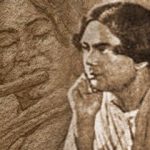—– Tashnova Yashrat Sneha
****************** **************
“An eye for an eye will only make the whole world blind.”
These words by Mahatma Gandhi still echo with painful truth. We live in an age of miracles—science has given us wings to fly, machines to think, and tools to connect across the world. From walking on the moon to building cities in the sky, humanity has achieved incredible things. Yet, even with all this progress, one dream remains distant—peace.
Why, despite all our achievements, do we still witness war, hatred, and destruction? The recent conflict between India and Pakistan has reminded us that no matter how far we’ve come, something deep within us still needs healing. Even in this modern age, we remain students of humanity, still learning the most important lesson of all.
A History of Division and Pain :
Since the partition in 1947, India and Pakistan have experienced a long and troubled relationship, marked by mistrust and repeated conflict. The two countries have fought four major wars—1947, 1965, 1971, and the Kargil War in 1999—primarily over Kashmir. Beyond the battlefield, border skirmishes and terrorist attacks have taken countless innocent lives and left deep scars.
In the most recent tragedy, 26 people lost their lives in a terrorist attack in Kashmir, reigniting pain on both sides. These repeated acts of violence raise a heartbreaking question: how many more lives must be lost before peace becomes more important than pride.
The True Cost: Human Suffering & Literary Reflections
Every living being deserves the right to live in peace. A country is not just land—it is a home built by people’s dreams, sacrifices, and hopes. Without people, a nation is just a map. It is the people who bring it to life.
But war destroys that life. It affects not only soldiers, but children who grow up in fear, women who lose their families, and ordinary people whose futures are shattered in seconds. What takes generations to build—a culture, a city, a community—can be erased in a moment.
Can any nation truly celebrate victory when it is soaked in the tears of others?
Literature has always reflected this sorrow. In his poem “Dulce et Decorum Est,” British war poet Wilfred Owen exposed the bitter reality of war, describing gas attacks and exhausted soldiers—not heroes, but broken men. He reminds us that war is not noble; it is a brutal lie wrapped in patriotic glory.
In South Asia, Saadat Hasan Manto captured the horrors of Partition through stories like “Toba Tek Singh,” where a mentally ill man finds himself caught between two nations. Manto’s writing reminds us that war doesn’t just split land—it fractures identities, memories, and the human heart.
Yet even in this darkness, Rabindranath Tagore offers a voice of light. He dreamed of a world “where the mind is without fear and the head is held high.” Tagore believed in universal humanity—a world not defined by borders, but by dignity and understanding.
Personal Reflection: A Silent Ache
Sometimes, when I look at the world—the headlines, the suffering—I feel a quiet ache in my chest. I am just a student, an ordinary human being, yet I carry a strange weight: the feeling of being powerless. I do not hold a weapon, nor do I sit at the tables where decisions are made. And yet, I feel responsible. Why? Because I belong to this world—a world that keeps hurting itself.
How is it that we can unlock the secrets of space and the human brain, yet still fail to unlock peace between our hearts? I feel ashamed—not because I caused this war, but because I’ve done nothing to stop it. I scroll past tragedy, sigh, and move on. Is that all I can offer?
But perhaps, even in that silence, there is something. Perhaps in writing these words, in mourning these lives, I am taking a step. A small one. Because even if I cannot change the world, I can choose not to accept it as it is. I can remember. I can care.
Maybe peace begins not in grand speeches, but in small hearts like mine—hearts that still believe the world can be better.
A Call for Peace
In a world torn by borders and blinded by pride, let us remember that the greatest power we hold is not in our weapons, but in our words, our compassion, and our shared humanity. Literature teaches us to feel beyond our own lives. As young people, as dreamers, we hold the power to write a different future—where love rises louder than hate and understanding silences violence.
Let us not remain silent witnesses to destruction. Let us become voices for peace, builders of bridges, and carriers of light. Every small act of kindness, every honest word, every story told with empathy is a resistance to war and a step toward healing.
> “If one word can start a war,
Let another begin peace.”
Conclusion:
This is not just a reflection on war—it is a reflection on humanity. From the long history of conflict between India and Pakistan to the recent tragedy in Kashmir, we are reminded again and again that war never truly ends. It only changes shape.
And yet, amid this sorrow, there remains hope. Hope in literature. Hope in empathy. Hope in youth.
Let us be brave—not in battle, but in choosing peace. Because war kills. Peace heals. And we must always be on the side that heals.
——————–
Written by Sneha, a student of literature who believes in the power of words to heal hearts.



